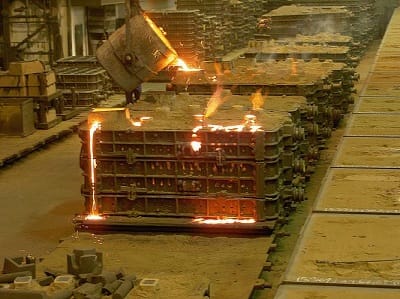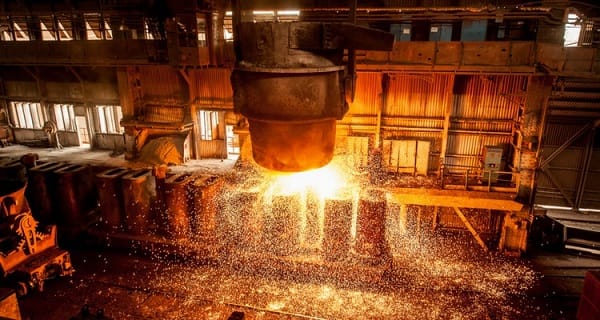Understanding What Is Metal Casting
What is metal casting? Metal casting is the foundational process of shaping molten metal into a defined form by pouring it into a mold. This technique has been a cornerstone of manufacturing for centuries, but with the advancement of industrial automation, it has evolved into a high-precision, cost-effective method for producing complex parts across multiple industries. Today, metal casting is not just about creating metal parts—it’s about efficiency, sustainability, and innovation in industrial production.
The Modern Advantages of Metal Casting
The integration of automation and smart technology has revolutionized what is metal casting, bringing numerous advantages to industrial manufacturing. Below are the key benefits that make modern metal casting an indispensable part of today’s industry.
Precision and Complexity
Traditional metalworking techniques often struggle to achieve intricate geometries. However, metal casting, especially when enhanced with CAD design and 3D printing for mold creation, allows for:
Extreme accuracy in component design.
Seamless production of complex and detailed parts.
A reduction in post-processing requirements.

Cost-Effectiveness and Scalability
Metal casting has become one of the most economical methods of manufacturing, particularly for mass production. Its advantages include:
Lower material waste: Casting optimizes material usage, reducing excess scrap.
Scalability: Once molds are developed, production can be scaled up efficiently.
Energy efficiency: Modern furnaces and automation systems minimize energy consumption.
Versatility in Material Selection
Unlike other manufacturing techniques, metal casting allows for the use of various metals and alloys, such as:
Iron and steel: Used in heavy machinery and automotive components.
Aluminum and magnesium: Essential for lightweight, high-strength applications.
Copper and brass: Ideal for electrical components and corrosion-resistant applications.
Integration with Industrial Automation
What is metal casting without automation? Today’s smart foundries integrate robotic systems, AI-powered quality control, and IoT-driven process monitoring to:
Enhance consistency and reduce defects.
Minimize manual labor, increasing safety.
Improve production speed and overall efficiency.
Applications of Metal Casting in Industrial Automation
As industries push towards greater efficiency and precision, what is metal casting plays a crucial role in the following sectors:
Automotive Industry
Metal casting enables the production of high-performance engine blocks, transmission parts, and suspension components with superior strength and durability.
航空航天与国防
Casting ensures the production of lightweight yet strong components for aircraft and defense systems, reducing fuel consumption and enhancing safety.
Heavy Machinery and Industrial Equipment
From turbines to pumps, metal casting creates durable, high-quality parts that can withstand extreme industrial conditions.
Robotics and Automation Machinery
Precision casting is critical for robotic arms, sensor housings, and machine components that require tight tolerances and high reliability.
The Future of Metal Casting in Industrial Automation
With advancements in digital manufacturing, what is metal casting today will continue to evolve, offering even greater efficiency and sustainability. The future trends include:
3D Printed Sand Molds and Investment Casting
Additive manufacturing enables the creation of highly intricate casting molds, reducing lead times and costs while allowing for more complex designs.
AI-Driven Quality Control
Automated defect detection and real-time monitoring using AI will further reduce errors and material waste in casting processes.
Eco-Friendly and Sustainable Practices
New developments in recyclable molds, energy-efficient furnaces, and alternative materials will make metal casting more environmentally friendly.
Fully Automated Foundries
As Industry 4.0 continues to evolve, smart factories will see a rise in fully automated metal casting facilities, improving speed, accuracy, and safety while reducing reliance on human intervention.
The Power of Modern Metal Casting
In today’s rapidly advancing industrial landscape, what is metal casting is no longer just a traditional method but a cutting-edge solution that enhances efficiency, precision, and sustainability. With automation, AI, and digital manufacturing playing a pivotal role, metal casting continues to be the backbone of modern industry. Manufacturers who embrace these innovations will remain at the forefront of industrial progress, reaping the benefits of improved production capabilities, cost savings, and sustainable growth.
